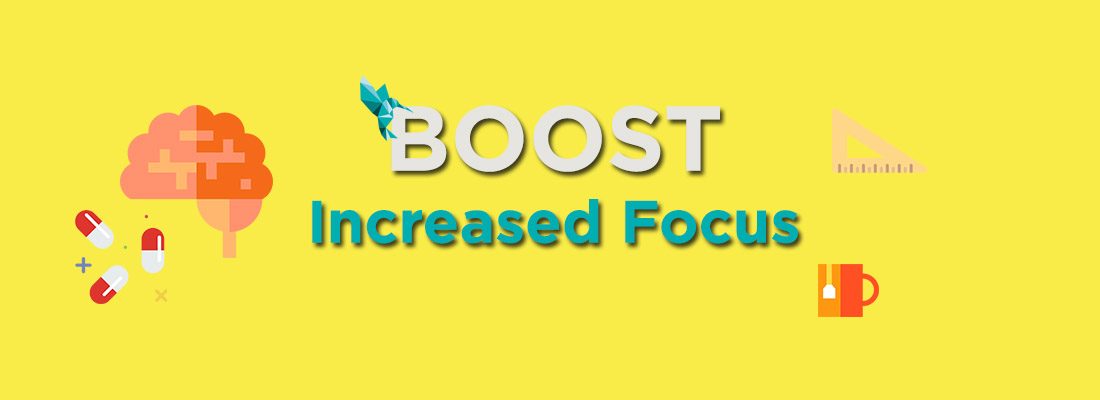
Increased Focus
Flow is our latest product in our quest for making lives more effective through nutritional solutions. Where our complete meals (shakes + bars) only provided you with the essentials, Flow is here to give you that extra positive effect. In our introduction, we explained what it does. And from there you can look at what each ingredient does. This blog will explain the part in-between, how the ingredients lead to the positive effects. I will take you on a journey through some of the most seminal research papers and explain it in an understandable way.
Today: How the Flow leads to Increased Focus
Our main ingredient that increases focus is Guarana. Each serving of Flow has 875mg Guarana. Within the Guarana, there is a 10% dose of caffeine. This is equal to one cup of coffee.
There are three research papers that look at the effect of Guarana on cognitive performance. And the last paper will focus on the effect of caffeine and the combination with L-Theanine.
- Improved cognitive performance in human volunteers following administration of Guarana [1]
- A double-blind, placebo-controlled, multi-dose evaluation of the acute behavioural effects of guaraná in humans [2]
- Improved cognitive performance and mental fatigue following a multi-vitamin and mineral supplement with added Guarana [3]
- The combined effects of L-Theanine and caffeine on cognitive performance and mood [4]
Flow contains a fair bit of caffeine. This stimulant creates a sense of amped up focus and mental energy. By combining the caffeine (from Guarana) with L-Theanine you achieve a relaxed calm focus, allowing a very peaceful sense of staying on-task.
Paper 1: Improved cognitive performance [1]

In this study, the researchers looked at the effect of Guarana on cognitive performance. Before the study (2004), there was little research on the psychoactive effects of Guarana. They found that Guarana improved task performance throughout the day. Here are the details:
- Psychoactive: A psychoactive drug, psychopharmaceutical, or psychotropic is a chemical substance that changes brain function and results in alterations in perception, mood, consciousness or behaviour.
The participants of the study were 28 men and women of around 21 years of age. They tested different variations of Guarana and other components. In the variation we will look at, they consumed 75 mg of Guarana. The Guarana had a maximum of 12% caffeine (maximum of 10mg).
The study was double-blind, counterbalanced, and place-controlled. The participants came in on 5 different days, each time with 7 days in-between (a washout period).
- Double-blind: Both the researchers and the participants are unaware of who is in the test and control group (who gets what)
- Counterbalanced: The participants are assigned in a way that some first get the placebo, others the Guarana
- Placebo-controlled: In one of the days a participant gets a placebo
- Washout: The period (7 days) during which the effects of Guarana are expected to be totally gone (washed-out)
During the research, they were tested by taking the Cognitive Drug Research (CDR) computerised assessment battery. This means that they all took tests that look at word recall, reaction times, spatial memory, word recognition, and various other cognitive aspects. They were tested in the 1 to 6 hours after taking Guarana.
Results
During the day (in the 6 hours) the participants improved their task performance (when compared to the placebo). They were faster and performed better on the tasks they were given. The results provide the first demonstration in humans of the psychoactive effects of Guarana.
Paper 2: Acute behavioural effects of Guarana in humans [2]

The dose of Guarana is the main focus of the present study. Three years after the previous paper, some of the same researchers now look at what happens at different doses of Guarana. They found that Guarana improves secondary memory performance and increases alertness. Oddly enough they found a more pronounced effect at a lower dose.
The participants in the study were 26 men and women of around 21 years of age. They tested 4 different amounts of Guarana, 37.5 mg, 75 mg (like the last study), 150 mg, and 300 mg. The Guarana had about 12% caffeine (maximum of 36mg).
The study was double-blind, counterbalanced, and place-controlled. The participants came in on 6 different days. Every time they were tested at 9 in the morning. They were tested in the 1 to 6 hours after taking Guarana.
During the research, they took the CDR assessment. Just like in the previous paper, they were tested for things like secondary memory performance, increased alertness, and mood ratings.
- Secondary memory performance: This is a measure of the performance of tasks that are ‘delayed’. This means that for a word recall test, the participants first do something else (or wait) and only then get to do the recalling of the words they saw before.
Results
The results of the current study confirm that Guarana can improve cognitive performance and mood in healthy young adults. The study provides the first demonstration of effects of Guarana on mood with dose-dependent increases in alertness and contentedness. Because the Guarana extract contained only 11–12% caffeine, it seems unlikely that the effects seen here can be solely attributed to Guarana’s caffeine content.
Paper 3: Improved cognitive performance and mental fatigue [3]

The third study looks at the effects of a multi-vitamin and mineral drink with Guarana. The researchers again looked at the performance of the participants. This time they also looked at mental fatigue. The Guarana drink improved task performance by increasing speed and accuracy. Mental fatigue was also diminished.
The study had 126 participants. They were both men and women of around 22 years old. They tested a dose of 222mg Guarana (40mg caffeine). This is higher than in the first study but lower than the maximum amount in the second study.
The study was double-blind, placebo-controlled, randomised, with parallel groups. The participants came in on 2 different days (instruction and test day). They were tested 6 times between 30 and 90 minutes after consuming the drink.
- Randomised: Participants of the study are randomly divided between conditions (Guarana drink and placebo drink)
- Parallel groups: The participants were divided into two parallel groups. Unlike the other studies, each person only had one experiment (Guarana drink or placebo drink)
During the research, the participants took a Cognitive Demand Battery (similar to the CDR). They did tasks that looked at visual information processing and math problems. They were also tested for mental fatigue.
Results
The participants who had drunk the Guarana drink were significantly faster performing the task. They were also more accurate. When asked how fatigued they were, the people who drank the Guarana drink noted that they were less fatigued. This shows that a vitamin/mineral/Guarana drink is capable of beneficially modulating both cognitive performance and subjective mental fatigue during an extended period of cognitively demanding task performance.
Paper 4: The combined effects of L-Theanine and caffeine on cognitive performance and mood [4]

The fourth, and final paper about increased focus, looks at the combination of caffeine and L-Theanine. The other papers focussed on the positive effects of Guarana and sometimes even ruled out the effect of caffeine. This time the research looks at what caffeine does and also looks at what L-Theanine can do for it. Together caffeine and L-Theanine improve alertness, accuracy, and reduce distractability.
The study is done on 27 participants. They are both men and women and around 28 years of age. They tested them with (and without) 50 mg of caffeine (similar to a small cup of coffee) and 100 mg of L-Theanine. Unlike other studies, this study was done by Unilever and not a university.
- Corporate research: It’s always tricky to rely on research by corporations. Their motive is profit and they may not always release all the research. We included this research because caffeine and L-Theanine are well studied. This study also correctly shows the methods and follows standard that are also used by universities.
The study was cross-over, counterbalanced, double-blind, randomised, placebo-controlled. Cross-over means that all participants had both the placebo and test drink. Every person was tested 2 times at 60 and 90 minutes after consuming the drink.
During the research, they took similar tests as the previous papers had. The researchers looked a word recognition, attention switching, and a mood test.
Results
They found no effect for word recall (unlike other research that included Guarana too). After caffeine ingestion, response speed and accuracy did improve in the attention-switching task. The combined treatment also led to an increase in the number of correctly identified new words in the word recognition task. The most significant effect was found on the attention switching task.
Increased Focus
These four studies are only a small sampling of the research out there. I hope that they have highlighted the robustness of their methods. And that you feel even more confident that Flow can help you be more productive.

No Comments